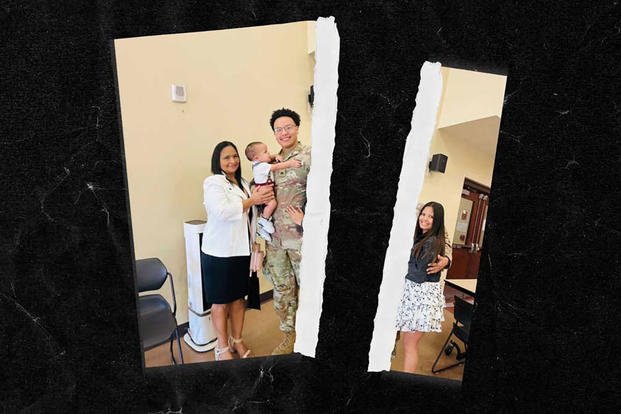Army families are finding themselves unexpectedly caught in the crossfire of immigration enforcement, a situation that has left many scrambling for solutions. With recent immigration policies affecting military families, the struggle to balance duty and family life has become even more complicated.
On a seemingly routine morning in March, Army Sgt. Ayssac Correa received a distressing call from his sister-in-law. She had just witnessed Immigration and Customs Enforcement (ICE) agents detaining Shirly Guardado, Correa’s wife, in their workplace parking lot. The incident was part of a broader national debate on immigration, fueled by President Donald Trump’s decision to deploy military forces to assist with immigration enforcement.
The issue of undocumented family members of military personnel is more prevalent than many might assume. Margaret Stock, an expert in immigration and military law, highlights this, noting the frequent international connections service members form during deployments. Estimates by Fwd.us suggest that there could be around 80,000 undocumented spouses or parents of military members residing in the U.S.
Despite the perception that military families might be shielded from immigration actions, there is no guaranteed path to citizenship for undocumented military family members, as immigration attorney Marino Branes points out. This has left many in a precarious position, trying to secure legal status for their loved ones amid increasing immigration enforcement.
In April, similar incidents occurred when ICE arrested the Argentinian wife of a Coast Guardsman and detained the Australian wife of an Army lieutenant. Such cases highlight the growing anxiety among military families facing potential separation due to immigration policies.
Polling data from the Pew Research Center shows that public opinion is divided on the deportation of undocumented immigrants, with a significant number of Americans supporting the deportation of undocumented individuals based on their circumstances. However, there is minimal support for deporting spouses of American citizens.
Military Parole in Place: A Complicated Process
The U.S. Citizenship and Immigration Services (USCIS) offers a program called military parole in place, designed to help military family members temporarily stay in the U.S. while they seek a more permanent status. This program emerged from the case of Yaderlin Hiraldo Jimenez, whose story led to policy changes allowing military families to remain together.
Despite the program’s existence, not all applications for parole in place are successful. Correa and Guardado faced rejection due to a technicality in Guardado’s deportation order, leaving them in a legal limbo with no clear resolution in sight. Guardado’s arrest by ICE occurred while her parole application was pending, underscoring the unpredictable nature of immigration enforcement.
Seeking Solutions and Support
For Correa, the situation has become a personal and professional dilemma. He plans to reunite his family by potentially relocating to Honduras, reflecting the lengths military families are willing to go to stay together. His decision hinges on whether his request to transfer to a base near his family is approved.
Advocates like Stephanie Torres emphasize the importance of supporting military families, arguing that deporting family members can undermine military readiness and morale. Organizations like Repatriate Our Patriots are actively working to support deported veterans and their families, providing a much-needed lifeline.
The case of Alejandra Juarez, who was deported despite her husband’s military service, illustrates the ongoing struggles faced by military families. Her temporary return to the U.S. under humanitarian parole serves as a reminder of the complex and often harsh realities of immigration policies.
While legislative efforts continue to address the challenges faced by military families, the road ahead remains fraught with uncertainty. As policymakers debate the future of immigration reform, the stories of families like Correa’s underscore the urgent need for solutions that honor the sacrifices made by military personnel and their loved ones.










